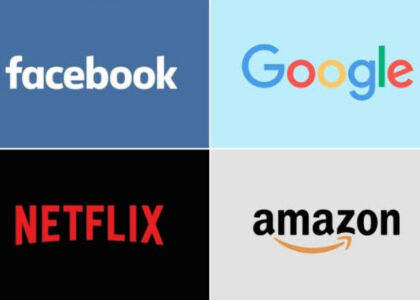Technology is revolutionizing the healthcare industry, improving patient outcomes, and transforming the way medical professionals deliver care. Let’s explore the exciting advancements in healthcare technology.
Telemedicine
– *Remote Consultations*: Telemedicine enables patients to consult with doctors remotely, increasing access to healthcare services and reducing costs.
– *Virtual Care*: Virtual care platforms provide patients with personalized care and monitoring, improving health outcomes.
Artificial Intelligence (AI) in Healthcare
– *Disease Diagnosis*: AI-powered algorithms can analyze medical images and diagnose diseases more accurately and quickly than human doctors.
– *Personalized Medicine*: AI can help tailor treatment plans to individual patients, improving efficacy and reducing side effects.
Wearable Technology
– *Health Monitoring*: Wearable devices can track vital signs, activity levels, and other health metrics, enabling patients to take proactive control of their health.
– *Early Detection*: Wearable technology can detect health anomalies, enabling early intervention and prevention.
Electronic Health Records (EHRs)
– *Digital Records*: EHRs provide a centralized and secure platform for storing and managing patient data, improving care coordination and patient safety.
– *Data Analytics*: EHRs can be used to analyze patient data, identifying trends and insights that inform healthcare decisions.
Future Outlook
– *Precision Medicine*: Advances in genomics and precision medicine will enable tailored treatments and targeted therapies.
– *Robotics and Automation*: Robotics and automation will continue to transform healthcare, improving efficiency and patient care.
By embracing technology, the healthcare industry can improve patient outcomes, reduce costs, and enhance the overall quality of care.Technology is revolutionizing the healthcare industry, improving patient outcomes, and transforming the way medical professionals deliver care. Let’s explore the exciting advancements in healthcare technology.
Telemedicine
– *Remote Consultations*: Telemedicine enables patients to consult with doctors remotely, increasing access to healthcare services and reducing costs.
– *Virtual Care*: Virtual care platforms provide patients with personalized care and monitoring, improving health outcomes.
Artificial Intelligence (AI) in Healthcare
– *Disease Diagnosis*: AI-powered algorithms can analyze medical images and diagnose diseases more accurately and quickly than human doctors.
– *Personalized Medicine*: AI can help tailor treatment plans to individual patients, improving efficacy and reducing side effects.
Wearable Technology
– *Health Monitoring*: Wearable devices can track vital signs, activity levels, and other health metrics, enabling patients to take proactive control of their health.
– *Early Detection*: Wearable technology can detect health anomalies, enabling early intervention and prevention.
Electronic Health Records (EHRs)
– *Digital Records*: EHRs provide a centralized and secure platform for storing and managing patient data, improving care coordination and patient safety.
– *Data Analytics*: EHRs can be used to analyze patient data, identifying trends and insights that inform healthcare decisions.
Future Outlook
– *Precision Medicine*: Advances in genomics and precision medicine will enable tailored treatments and targeted therapies.
– *Robotics and Automation*: Robotics and automation will continue to transform healthcare, improving efficiency and patient care.
By embracing technology, the healthcare industry can improve patient outcomes, reduce costs, and enhance the overall quality of care.Technology is revolutionizing the healthcare industry, improving patient outcomes, and transforming the way medical professionals deliver care. Let’s explore the exciting advancements in healthcare technology.
Telemedicine
– *Remote Consultations*: Telemedicine enables patients to consult with doctors remotely, increasing access to healthcare services and reducing costs.
– *Virtual Care*: Virtual care platforms provide patients with personalized care and monitoring, improving health outcomes.
Artificial Intelligence (AI) in Healthcare
– *Disease Diagnosis*: AI-powered algorithms can analyze medical images and diagnose diseases more accurately and quickly than human doctors.
– *Personalized Medicine*: AI can help tailor treatment plans to individual patients, improving efficacy and reducing side effects.
Wearable Technology
– *Health Monitoring*: Wearable devices can track vital signs, activity levels, and other health metrics, enabling patients to take proactive control of their health.
– *Early Detection*: Wearable technology can detect health anomalies, enabling early intervention and prevention.
Electronic Health Records (EHRs)
– *Digital Records*: EHRs provide a centralized and secure platform for storing and managing patient data, improving care coordination and patient safety.
– *Data Analytics*: EHRs can be used to analyze patient data, identifying trends and insights that inform healthcare decisions.
Future Outlook
– *Precision Medicine*: Advances in genomics and precision medicine will enable tailored treatments and targeted therapies.
– *Robotics and Automation*: Robotics and automation will continue to transform healthcare, improving efficiency and patient care.
By embracing technology, the healthcare industry can improve patient outcomes, reduce costs, and enhance the overall quality of care.






